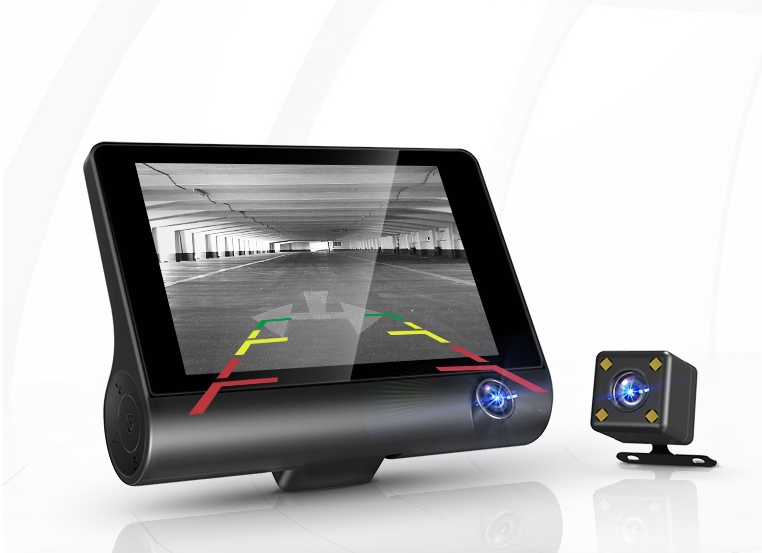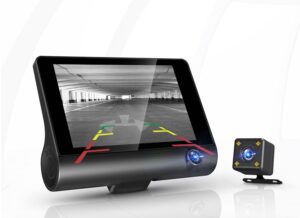
Discount up to 35% for first purchase only this month.
Account


In today’s fast-paced world, driving has become more than just a means of transportation; it’s an essential part of our daily lives. Whether you’re commuting to work, embarking on a road trip, or simply running errands, the need for safety and convenience is paramount. Two technological innovations that have revolutionized driving are Car GPS systems and Dash Cams for safe . These tools offer not only practical benefits but also peace of mind for drivers. In this article, we will explore how these devices can make your journeys safer, more efficient, and stress-free.
Gone are the days when people relied on paper maps or memorized directions to get from one place to another. A Car GPS (Global Positioning System) provides real-time, accurate navigation, making it easier to reach your destination without unnecessary detours or delays. Whether you’re driving through unfamiliar cities or simply want to avoid traffic, a car GPS can be your trusted guide on the road.
A GPS system offers precise, step-by-step directions, helping you navigate easily through new or unfamiliar areas. With live traffic updates, your GPS can suggest alternate routes if traffic congestion is detected, saving you time and frustration.
By offering the quickest or most efficient routes, a GPS helps minimize travel time. It calculates the best route based on real-time data, allowing you to avoid traffic jams, construction zones, or accidents.
Many GPS systems come with the added feature of providing information about nearby restaurants, gas stations, hotels, and other points of interest. This feature is incredibly useful during long trips or when you’re looking for places to stop for a break.
Modern car GPS devices often include voice-activated features, allowing drivers to operate the system without taking their hands off the wheel. This reduces distractions and promotes safer driving.
A Dash Cam (Dashboard Camera) is a small camera mounted on your car’s dashboard or windshield that records video footage while you drive. While many drivers still perceive dash cams as a luxury, they have quickly become an indispensable tool for providing security and accountability on the road.
In the unfortunate event of a car accident, a dash cam provides crucial video evidence. Whether you’re at fault or not, the footage can help resolve disputes with insurance companies and law enforcement, ensuring that you’re not unfairly blamed for accidents you didn’t cause.
Having a dash cam can potentially lower your insurance premiums. Insurance companies may offer discounts to drivers who have cameras installed in their vehicles, as these devices reduce the risk of fraudulent claims.
A dash cam can be a deterrent to aggressive drivers or road rage incidents. Knowing that their actions are being recorded may prevent others from engaging in reckless driving, protecting both you and your passengers.
Dash cams provide an extra layer of safety by recording everything that happens while you’re driving. This could be beneficial for monitoring young drivers, ensuring that they adhere to safe driving practices, or providing peace of mind during long solo trips.
Many modern dash cams feature a Parking Mode, which continues to record while your car is parked. This can help capture hit-and-run incidents, vandalism, or accidents that occur while your vehicle is stationary, offering added protection even when you’re not in the car.
While both GPS systems and dash cams have their unique advantages, their integration offers a seamless driving experience. Several models now combine both features into one device, streamlining your dashboard setup and making it easier to manage your navigation and recording needs simultaneously.
By choosing an integrated GPS and dash cam system, you eliminate the need for multiple devices, saving space on your dashboard and reducing clutter. This streamlined design ensures that your car’s interior remains neat and functional.
Integrated systems often provide additional features, such as real-time GPS traffic updates while recording footage of the road. This dual functionality enhances your driving experience without the need to switch between different devices.
Buying a combined GPS and dash cam system can be more affordable than purchasing two separate devices. Additionally, many of these integrated systems come with enhanced features at a fraction of the cost of individual premium devices.
Combined systems are designed for simplicity. You only need to learn one interface to operate both the GPS navigation and dash cam recording, making the driving experience smoother and more intuitive.
When selecting a GPS and dash cam combo for your car, there are several factors to consider. Here are a few key features to look for:
Look for a dash cam that offers HD or 4K video quality for clear and crisp footage. This ensures that the video evidence captured during a collision or dispute is sharp and detailed.
A large, high-resolution screen allows for easy navigation and clear video playback. Choose a system with a display size that suits your preferences and provides good visibility while driving.
Make sure that the GPS offers real-time traffic updates, live rerouting, and detailed turn-by-turn directions. Features like voice control, points of interest, and hands-free functionality are also important.
Both GPS and dash cam systems require storage space. Choose a device that has enough internal storage or supports an SD card for continuous recording. Some dash cams offer loop recording, which automatically overwrites older footage when the storage is full.
If you’re interested in using your dash cam for protection while parked, look for a system with parking mode and motion detection. This ensures that your car is continuously monitored, even when you’re not in the vehicle.
Look for a GPS and dash cam combo that is easy to install and mount in your vehicle. A suction cup or adhesive mount that fits securely to your windshield or dashboard is ideal.
Investing in a car GPS and dash cam can significantly enhance your driving experience by adding layers of security, convenience, and peace of mind. A GPS system helps you navigate effortlessly, avoiding delays and getting you to your destination on time. Meanwhile, a dash cam serves as a silent witness, recording your journeys and providing protection in case of accidents or disputes. Together, these devices offer a comprehensive solution for safe, stress-free driving.
Whether you’re driving long distances, commuting daily, or just want an extra level of security, a car GPS and dash cam are invaluable tools. These devices not only make your journeys more enjoyable but also safeguard your interests and those of your passengers. By incorporating these advanced technologies into your vehicle, you’re taking a proactive step toward smarter, safer driving.
While smartphone apps like Google Maps or Apple Maps are convenient, a dedicated car GPS can offer more accurate, real-time traffic updates, larger screens for easier viewing, and hands-free operation, reducing distractions.
Yes, many modern dash cams feature a Parking Mode, which continues recording even when the vehicle is off, protecting your car from potential damage or theft while parked.
Most GPS and dash cam systems come with clear installation instructions. GPS devices typically mount to your dashboard or windshield, while dash cams can be installed using suction cups or adhesive mounts.
Absolutely. Dash cams provide essential video evidence in the event of an accident, helping to resolve insurance claims more quickly and accurately by providing an unbiased record of the incident.
Yes, combining both GPS and dash cam functionality into a single system offers convenience, saves space, and can be more cost-effective. It also simplifies device management and enhances your driving experience.